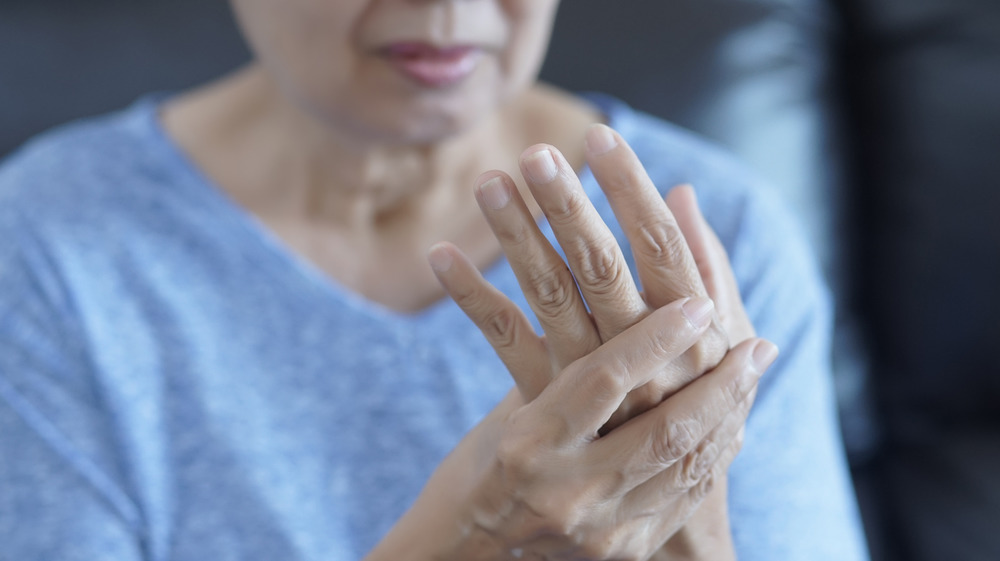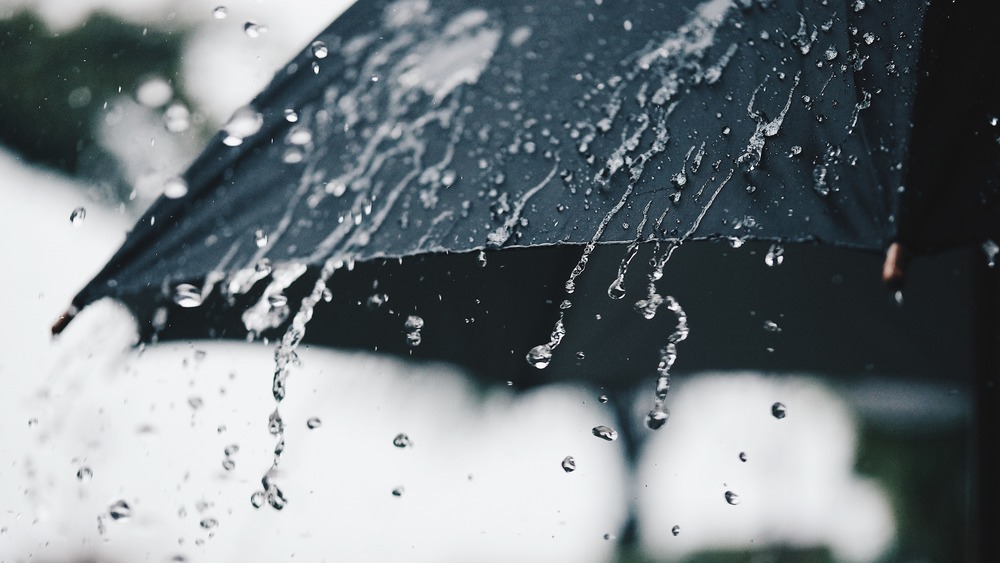How The Weather Can Affect Arthritis
People sometimes report feeling "chilled to the bone" during particularly cold winter seasons. While generally used as a metaphor, is it possible that the weather can actually have physiological effects on our joints? While research has shown to be somewhat inconclusive with answers ranging from support of this notion to debunking it altogether, it's worth exploring both sides of the data to get a more thorough idea of whether or not weather has a scientific effect on arthritis.
Experts at the Mayo Clinic define arthritis as, "the swelling and tenderness of one or more of your joints" and common symptoms of the condition include pain and stiffness. Pain management specialists at the Cleveland Clinic support the idea that yucky rainy weather may increase the likelihood of joint pain. But why? Well, it's likely a result of swelling from decreased surrounding air pressure, accompanied by high levels of humidity. Additionally, cold weather has been known to cause increased tensing of our muscles since we're often less physically active than we are when the weather is warmer. Therefore, soreness from lack of movement can increase chances of joint pain (via University of Utah Health).
Muscle tension and decreased barometric pressure may increase joint pain in cold weather
On the flip side, some studies have instead shown a lack of relationship between arthritis pain and weather changes. A study conducted by the George Institute for Global Health uncovered interesting findings that offered an alternate reason for why we associate cold weather with joint stiffness. While the study concluded there was no clear connections between weather and arthritis, researchers suggest that our belief in this connection has more to do with memory than meteorology. In essence, Professor Chris Maher concluded that people are more likely to remember events that reinforce our already-established beliefs. He states, "Human beings are very susceptible, so it's easy to see why we might only take note of pain on the days when it's cold and rainy outside, but discount the days when they have symptoms but the weather is mild and sunny."
Though further research is still needed to provide conclusive results on the subject, there are some ways to help relieve joint pain when it flares up. Some suggestions include stretching throughout the day, exercising in a warm pool, or consulting with a doctor about the possibility of medication or other anti-inflammatory treatments (via Cleveland Clinic). Overall, medical professionals emphasize that staying mobile and flexible is the key to relieving joint pain come rain or shine!


